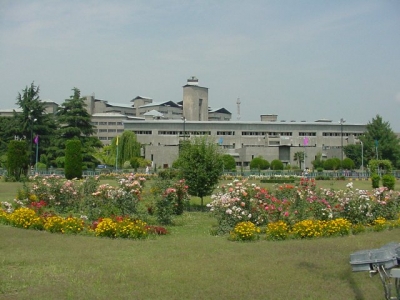Ahmad Riyaz
Supreme Court has put a fresh spotlight on the urgent need for justice for the victims of Pathribal fake encounter in which army killed five innocent Kashmiris and passed them off as the terrorists who killed 36 Sikhs at Chittisinghpora. The SC pulled up army for stonewalling justice in the case that has been dragging on for the past twelve years. The apex court’s observations were harsh: “You the Army] don’t want to take over the case and initiate court martial proceedings against them. You don’t allow the criminal justice system to go ahead.”
This is first time that army has been rapped for its inaction in the case and directed in no uncertain terms to take action against its responsible for the encounter. Incidentally, CBI has already charged five senior army officials, including a brigadier for abduction, murder, criminal conspiracy and the destruction of evidence in the Pathribal fake encounter case. However, army has neither proceeded against them on its own nor let the criminal courts try the case. Army has, as in many other cases, sought protection under the provisions of the Armed Forces Special Powers Act, arguing that no action can be initiated against its personnel by the civilian courts unless sanctioned by the defence ministry which, in turn, has been impossible to secure for the successive state governments.
Even though there is little hope that the SC’s intervention can finally push the army to initiate an early action against the identified personnel, the court’s observations have helped brought spotlight back on AFSPA. Chief Minister Omar Abdullah has taken the opportunity to turn central government’s attention towards the pending decision to revoke the law from the areas in the state where army is not involved in counter-insurgency.
Incidentally, Human Rights Watch has also renewed the call for revocation of the Act around the same time. The rights watchdog has once again lamented the impunity enjoyed by the army and paramilitary forcesunder the act and made a strong pitch for its revocation.
Pathribal could serve as a milestone in both the raging AFSPA debate and the centre’s willingness to redress the accumulated human rights grievances in the state. On AFSPA, if there can be a best case for its revocation, it is how the law has been arbitrarily used to deny justice in a ghastly open and shut case of human rights violation.
Over the years, Pathribal has become symbolic of the atrocities under AFSPA. While the law may or may not have aided the fight against militancy in the state, it has certainly bred a culture of impunity among security forces in the state, thereby making it easier for them to commit human rights violations.
Even aside from its larger AFSPA dimension, Pathribal and justice in the case have an independent significance of their own. If army itself or the central government take the case to its logical conclusion, which would certainly be an exemplary punishment to the perpetrators, it could go a long way to get people in Valley to repose some trust in the system. There is a path through Pathribal to reach out to the people of the state, provided New Delhi exhibits the necessary mindfulness to do so.















